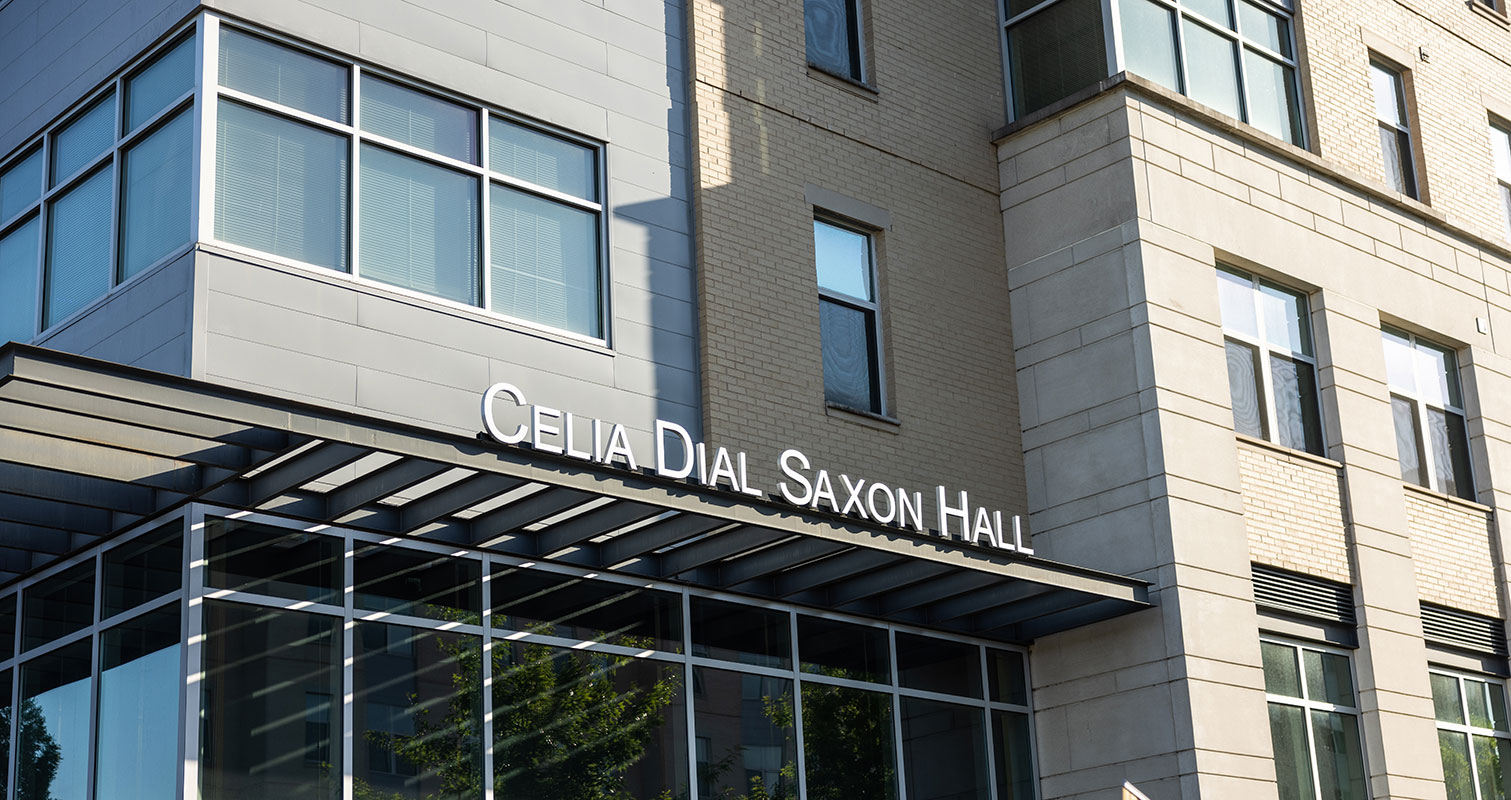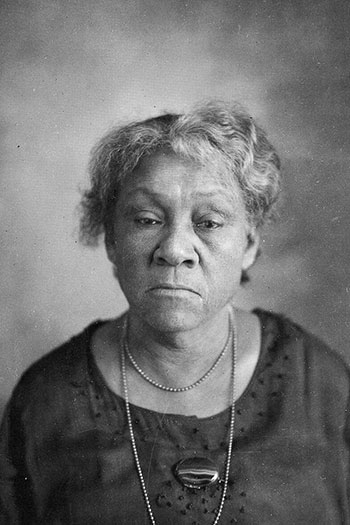
USC residence hall named for pioneering educator Celia Dial Saxon
The University of South Carolina celebrated the naming of a residential hall after pioneering educator and civil rights advocate Celia Dial Saxon at a public ceremony on Friday (April 21). Saxon is the first African American to be honored with a building name on the Columbia campus.
The residential hall, at 700 Lincoln Street in Columbia, houses 297 students and is located adjacent to the historic Ward One District, where an elementary school named for Saxon was located until its closure in 1968. Friday’s dedication ceremony featured USC President Michael Amiridis, members of the university’s Board of Trustees, and community dignitaries. The seven-story building, which features apartment-style suites, opened in 2016.
“With this dedication we are taking another step forward in the university’s ongoing efforts to acknowledge and reconcile difficult pieces of our past,” Amiridis said.

Born in Columbia in 1857, Saxon (born Celia Emma Dial) spent her life working to provide educational and financial resources for African Americans in South Carolina and to advance the rights of women and girls. During Reconstruction, Saxon became one of the first African American students to attend the South Carolina State Normal School, which was established by the General Assembly in 1873 and opened on the University of South Carolina campus in 1874.
Although she worked under the burden of the Jim Crow era, her commitment to equality, justice and hard work enabled her to excel as an educator. Over her 57-year career, Saxon taught at Booker T. Washington High School, Benedict College and South Carolina A&M College and influenced generations of Black students.
Saxon also was active in the national Women’s Club Movement and was involved in numerous organizations such as the Palmetto State Teachers' Association, the South Carolina Federation of Colored Women’s Clubs, and the Woman’s Christian Temperance Union. As a member of the State Federation of Negro Women’s Clubs, Saxon was one of the founders of the Fairwold Industrial School for Negro Girls in and the Wilkinson Orphanage for Negro Children in South Carolina’s Midlands.
“Mrs. Saxon’s influence was understood and honored by the generations of students like me who attended the elementary school that bore her name,” said Columbia native, former Gamecock and NBA star, and current Board of Trustee member Alex English. “Mrs. Saxon’s life, her teaching at Booker T. Washington High School, her legacy at the Celia Dial Saxon School, and this morning’s dedication are tied to the neighborhoods that no longer exist in Columbia and to histories of the University of South Carolina, the City of Columbia, the Ward One Community, and the generations of Black Columbians like me who once called this area home.”
The renaming of this residence hall is part of ongoing efforts to place USC’s history in context and to honor those who have been left out of the university’s story. Other recent efforts include renovations to the former Booker T. Washington High School (with further renovations currently being planned); the 2017 installation of two markers on the Horseshoe to credit the work of enslaved persons in constructing the USC campus and landscape; the 2018 unveiling of the Richard T. Greener statue on campus, honoring the university’s first Black professor; and the January 2023 unveiling of a State Historical Marker on the west end of the Horseshoe acknowledging the history of USC during Reconstruction.
"The university has an obligation to tell the stories of the people that helped shape the campus and contributed to what our institution is today."
Later this year, the university expects to unveil a monument in statue form of the three students who desegregated the university on September 11, 1963: Robert G. Anderson, Henrie Monteith Treadwell, and James L. Solomon Jr.
Board of Trustees Chairman Thad Westbrook credited USC’s Presidential Commission on University History, which includes faculty members, trustees and administrators, for laying the groundwork for Friday’s building naming. Established in 2019, the commission explores ways to more broadly recognize forgotten, excluded, or marginalized groups and individuals who positively contributed to the establishment, maintenance, and growth of the university.
“The university has an obligation to tell the stories of the people that helped shape the campus and contributed to what our institution is today. Celia Dial Saxon’s legacy as a tireless champion for educational equality will undoubtedly serve as an inspiration for future generations of USC students,” Westbrook said.